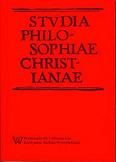Utylitaryzm w etyce Davida Hume'a
Utilitarian threads in David Hume’s moral theory
Author(s): Dorota ProbuckaSubject(s): Philosophy
Published by: Wydawnictwo Naukowe Uniwersytetu Kardynała Stefana Wyszyńskiego w Warszawie
Keywords: utilitarianism; utility; benevolence; happiness; rationality
Summary/Abstract: In the paper, the utilitarian topics present in David Hume’s philosophy are analyzed, assuming that utilitarianism is more a form of moral reasoning than a moral theory. Hume is one of the most important thinkers in the history of Western philosophy and his ethics has been influential in modern day moral theory, especially in classic and contemporary utilitarianism. The basic ideas of his theory are explained and the relationships between them and the utilitarian position are shown. Typical characteristics of utilitarian thinking are: consequentialism, the principle of utility, and the recognition of the idea of common happiness (common welfare) as the ultimate goal of human activity. It is argued that Hume’s views are closer to the contemporary versions of utilitarianism (rule – utilitarianism, act – utilitarianism) than the positions of J. Bentham and J.S. Mill.
Journal: Studia Philosophiae Christianae
- Issue Year: 48/2012
- Issue No: 2
- Page Range: 109-122
- Page Count: 14
- Language: Polish

